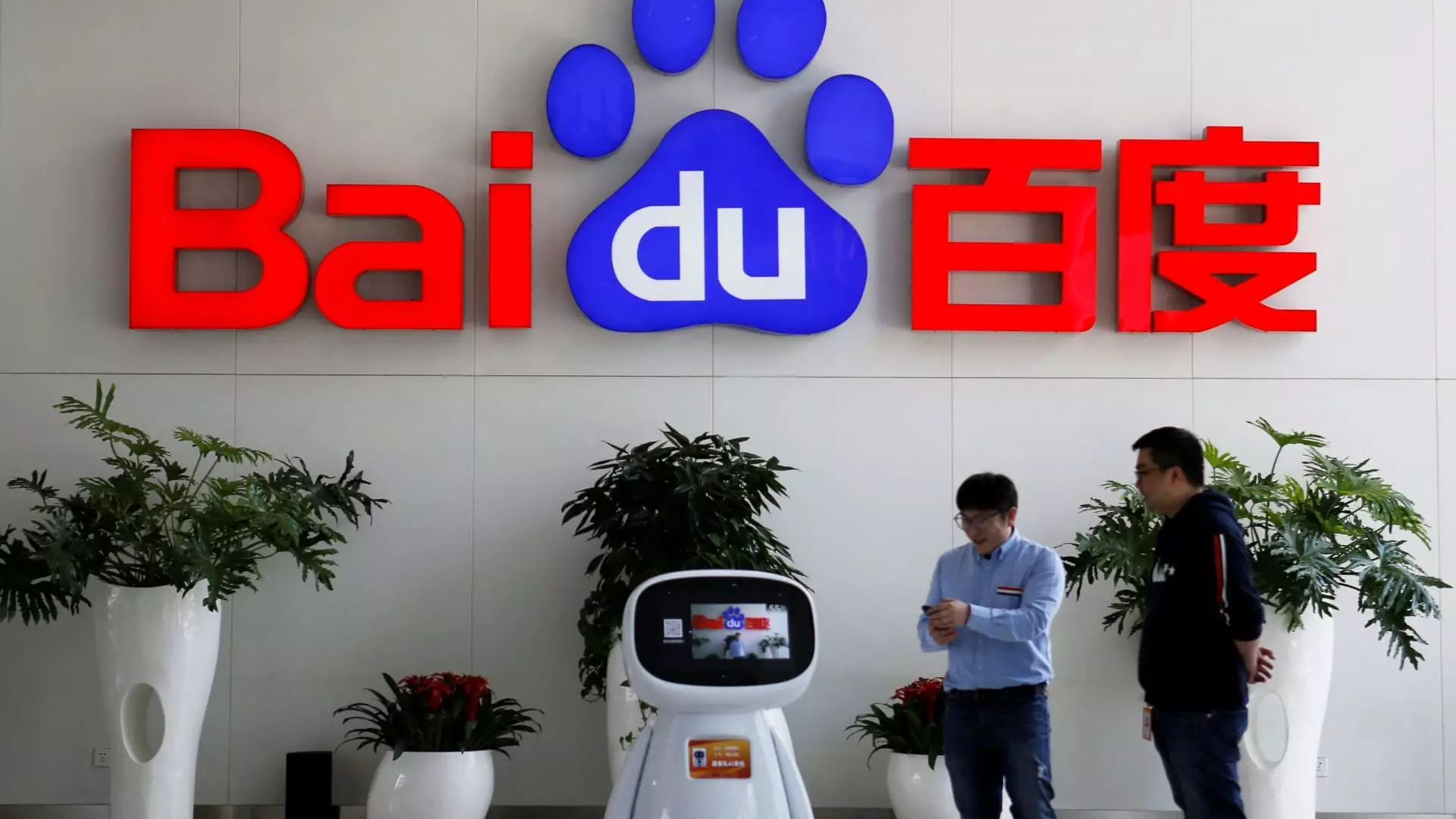Artificial intelligence is reshaping industries worldwide, and in China, the landscape is rapidly evolving. Baidu is at the forefront of this transformation, preparing to unveil the next iteration of its AI model, Ernie 5.0, in the latter half of 2024. This forthcoming release is particularly significant as it comes during a period of intense competition, particularly with the rise of rival AI technologies from newcomers such as DeepSeek.
Baidu’s Ernie 5.0 is anticipated to be a substantial upgrade, featuring enhanced multimodal capabilities. While specific functionalities have not been disclosed, the term “multimodal” refers to an AI’s ability to process and understand various forms of data—text, images, audio, and video. This improvement could empower users to convert content from one format to another seamlessly, revolutionizing how information is consumed and created.
As organizations across sectors increasingly adopt AI technologies, the demand for models that can interact across formats is surging. For instance, an AI model that can generate a video from a text script or create an informative presentation based on audio analysis offers tremendous utility to businesses and individuals alike. Such advancements place Baidu in direct competition with international players, particularly OpenAI, which has set a high standard with its ChatGPT offerings.
Baidu’s intended enhancements come at a crucial time when the competition is escalating within the AI domain. DeepSeek, a startup based in Hangzhou, has recently made headlines by releasing an open-source AI model that has demonstrated impressive reasoning abilities. The model’s cost-effectiveness, undercutting OpenAI’s ChatGPT, has given rise to concerns and has contributed to a notable market response.
Current trends suggest that while Baidu was initially a pioneer in the chatbot sphere with the launch of Ernie in March 2023, the momentum has shifted. Startups and major tech giants in China, such as Alibaba and ByteDance, have gained traction with innovative products that are capturing attention and market share. In light of this, Baidu’s upcoming model is crucial for the company to regain its competitive edge and meet the expectations of its users.
Baidu’s CEO, Robin Li, emphasized the significance of making AI accessible and affordable. At a recent summit in Dubai, he noted that the inference costs associated with foundation models could be reduced dramatically. Li’s assertion that reducing these costs by as much as 90% within a year would inherently boost productivity speaks volumes about the potential for future innovations.
This drive for affordability mirrors a larger trend within the tech industry: maximizing efficiency while minimizing expenses. As AI becomes an integral solution for businesses, the ability to leverage advanced capabilities at a lower cost will be a major deciding factor for adoption. This has broad implications for not just Baidu but the entirety of the competitive landscape, wherein productivity and cost-effectiveness could dictate the market leaders.
Baidu’s existing capabilities with its Ernie models reflect a commitment to providing comprehensive AI solutions integrated across various platforms. The company reported that its Wenku platform, which helps users generate presentations and documents, has seen a significant uptick in paying users. This growth highlights the practical applications of AI in optimizing business tasks, a strategy Baidu has championed through its product offerings.
Nevertheless, with the introduction of Ernie 5.0, Baidu faces the challenge of not only meeting but exceeding user expectations. As organizations increasingly look for sophisticated AI tools, the pressure to deliver new functionalities and improvements will only mount. It will be interesting to see how Baidu manages to sustain its momentum and position itself against both established players and emerging startups.
As Baidu gears up for the launch of Ernie 5.0, the company is poised for a transformative moment in the AI space. Given the rapid advancements in technology and shifting consumer preferences, it is critical for Baidu to innovate continuously.
The trajectory of AI models, particularly those that can operate across multiple modalities, will be a focal point for industry participants. Baidu’s ability to navigate this evolving landscape and react to competitive challenges will determine not only its market share but also its influence in the global AI narrative. The coming months will be pivotal as Baidu looks to redefine its role in an increasingly crowded marketplace.

